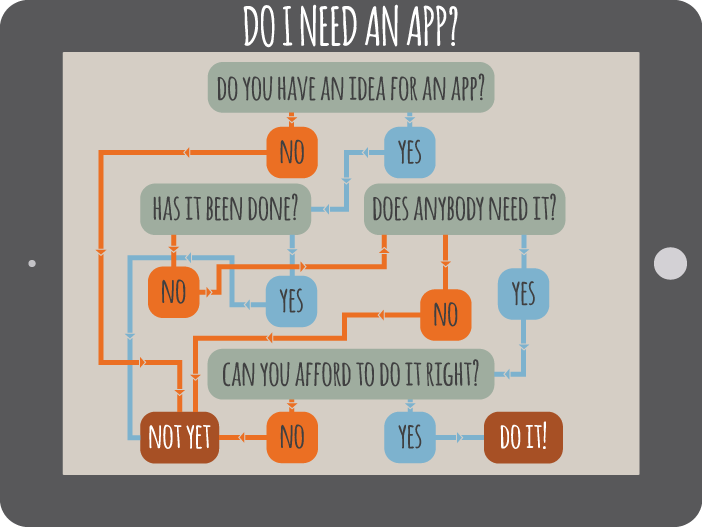“Mobile first” has become the marcomm rallying cry as more and more people consume information via smartphone than any other device. As a result, a glut of mobile apps are flooding the app stores. Much like the build-up of the early 90s dot com bubble, just about every brand has come to the conclusion over the last few years that it needs an app. Maybe an executive tried to view the company website on a smartphone and realized it was a horrible user experience and thought, “We’ll fix this by getting an app.” Or maybe a competitor put out an app and someone on your product team declared, “We gotta have one, too!”

Whether “mobile first” is the right strategy or not, you can’t overlook any of your channels. An app probably will benefit your business and a mobile app strategy should be a pillar of your communications efforts, but first, brands need to seriously consider the Why?, the How? and the Who? behind their app. The app needs to add value. It needs to solve a problem. How does it drive engagement with your customers or your employees? How does it help your brand differentiate itself from its competitors? Who is the app intended for? What solution is your app delivering?
If you aren’t thinking about apps as a solution to your business challenges, your apps are more likely to gather dust on the app store shelf. Ask yourself if this app meets a need that will earn a spot on the front page of your target user’s mobile device. Does it provide that much value that a user needs it at their fingertips at all times? Or, more importantly, does your app meet a need in the right moment? If you aren’t thinking about when the ideal time and what the ideal platform is for your user, your application will fall short. It’s not about checking off the app box, it’s about creating a great mobile app strategy that gets rolled out seamlessly across all of your platforms.

Building an app is an investment. Amazing developers aren’t cheap. If your app is the primary way your customers will interact with your brand or if it serves as your salesforce’s biggest sales tool, it needs to work seamlessly. You don’t trust your company’s finances to a fresh-out-of-biz-school accountant; don’t trust your app development to an off-shore development team or a CS grad right out of tech school either. You also don’t let one person in your organization make all of the decisions for your business or spend all of your technology budget for the year without input from others.
Bring your teams together. Your analysts, your marketing folks, your IT staff, your product teams, HR. Listen to what they have to say. They may be far more aware of certain challenges or see opportunities to engage with customers that could easily be addressed through a sound mobile app strategy.
